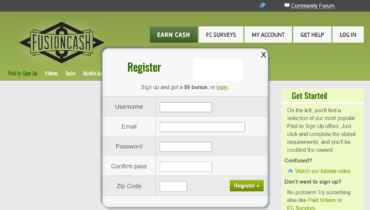When selecting a payment gateway for your business, it’s essential to consider the nature of your clients and their payment preferences. The right payment solution can significantly impact customer satisfaction and your overall business operations. For businesses that cater to an international audience, PayPal often stands out as a go-to choice. This is because PayPal accepts almost all bank cards, including Visa, MasterCard, and American Express, making it easy for customers worldwide to make payments. Additionally, PayPal has a long-established reputation for security and reliability, which builds trust, especially in developed countries where it’s widely used.
However, despite its global appeal and widespread adoption, PayPal may not be the ideal choice for every business model, particularly those dealing with large transactions. PayPal has stringent risk management policies that target industries where substantial payments are common.
High-risk businesses typically involve industries where large sums of money are transacted, or where the potential for chargebacks and disputes is high. Businesses like forex trading, cryptocurrency exchanges, high-ticket items, online gaming, Cargo and freight, real estate and adult services are especially vulnerable. PayPal’s security algorithms actively monitor such accounts, and when patterns of large transactions, disputes, or suspicious activity arise, the platform acts swiftly to limit potential financial exposure. Industries that frequently handle large sums of money—may face challenges using PayPal as their primary payment gateway. These types of businesses often experience account suspensions or restrictions due to PayPal’s internal risk assessment, which classifies high-value transactions as potentially risky.
Another industry where caution is advised is the travel sector. Depending on the nature of your business and the volume of payments you receive, particularly if single transactions regularly exceed $3,000, PayPal may not be the safest option. The platform may flag these transactions, leading to delays, holds, or even account freezes. This can become especially problematic if you rely heavily on quick access to funds to maintain your operations.
If you would like to know more about using PayPal in Uganda, including setting up a Virtual paypal account in Uganda,
Call/Whatsapp +256706686059 (Free Consultancy)
A significant number of PayPal accounts globally have faced permanent bans, often linked to the nature of the businesses they were associated with. PayPal, being one of the most widely recognized online payment platforms, enforces strict guidelines to mitigate risks. Many business types fall under what PayPal classifies as “high-risk,” and accounts involved in these industries are frequently flagged for review, often leading to permanent suspension.
In some cases, the bans occur without warning, leaving business owners unable to access funds or continue using the platform. The problem is compounded by PayPal’s global reach, which means that a permanent ban in one country can affect a business’s operations on an international scale. For many entrepreneurs, this sudden action can be detrimental, especially if they rely heavily on PayPal for processing payments or managing international transactions.
PayPal’s decision to ban accounts isn’t only based on the type of business but also on perceived risk factors. For instance, if an account experiences a sudden surge in sales, an increase in disputes, or unusually large transactions, PayPal might flag it as risky—even if the business itself doesn’t fall into a high-risk category. This automated monitoring, while designed to protect both the platform and its users, can be overly stringent, and many legitimate businesses have found themselves locked out due to an overzealous interpretation of these rules.
Ultimately, while PayPal offers convenience and trust for many businesses, those operating in high-risk sectors or dealing with large sums of money should be cautious. Diversifying payment gateways and ensuring compliance with PayPal’s policies is essential to avoid facing a permanent ban that could severely disrupt business operations.
To safely use PayPal for large transactions, it’s crucial to be a well-established brand with a solid, transparent shipping or ordering system in place. Companies with a good reputation, robust delivery systems, and positive transaction histories are more likely to experience fewer issues with high-value payments. For smaller or newer businesses, it’s recommended to either keep transaction amounts under PayPal’s risk thresholds or explore alternative payment gateways better suited for large sums of money.



